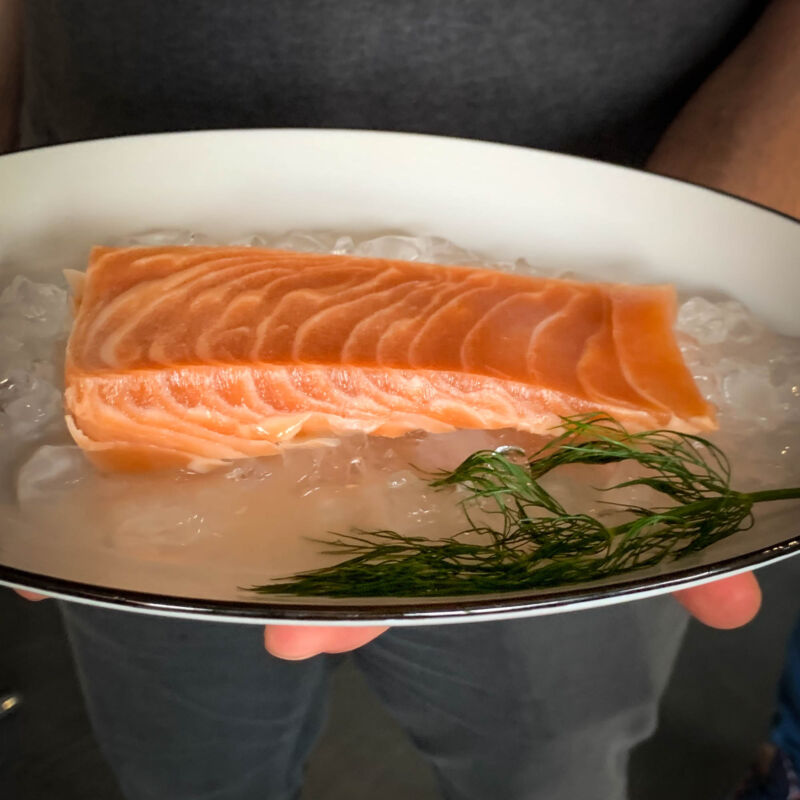Enlarge / It may look a lot like fish, but it’s not. (credit: New School Foods)
I could count on one thing as I sat down for a multiple-course meal based on something that looked very much like salmon: I would not have to worry about any bones. The plant-based theme ingredient came from a Toronto startup called New School Foods that has been developing a way to construct a salmon substitute with not just the taste but also the texture of the real thing.
New School treated a table’s worth of journalists to a tasting dinner in Toronto in late June—subject to a no-food-photos rule for attendees but with no restrictions on taking notes. That comped meal came hours after CEO Chris Bryson gave his sales pitch for the company during a panel at the Collision conference there, in which he said that New School’s goal was to see its products “enthusiastically adopted by non-vegans.”
New School has given itself a tall order by making salmon its go-to-market product. Salmon both has a distinctive, delicate texture and one of the most identifiable flavor profiles among seafood. And people prepare it with a wider range of techniques than most kinds of meat allow—grilling, poaching, sautéing, smoking, roasting, or even not cooking it at all. For plant-based salmon to pass muster, it has to work across those use cases.
Read 17 remaining paragraphs | Comments

